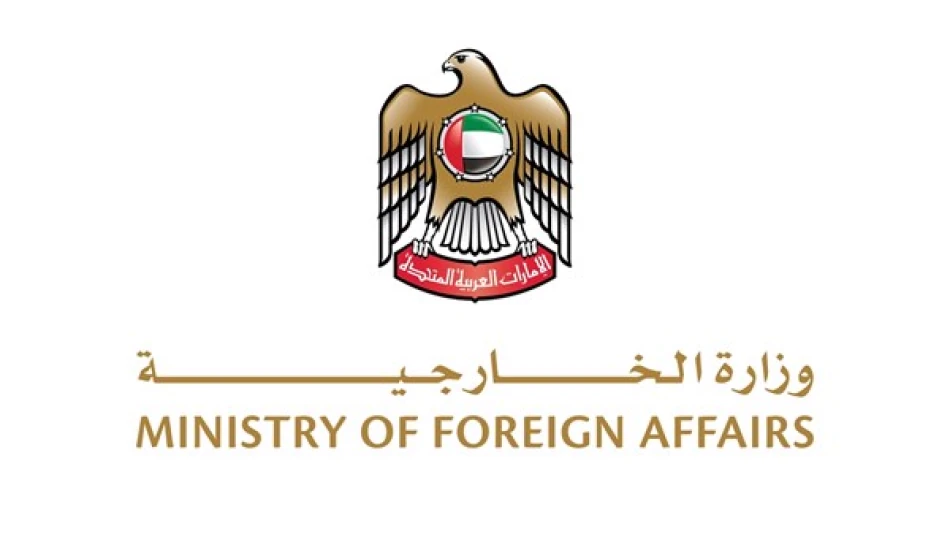
UAE Condemns Terrorist Shooting Incident Near Jerusalem
UAE Condemns Jerusalem-Area Shooting as Regional Diplomatic Ties Face New Test
The United Arab Emirates has issued a strong condemnation of a terrorist shooting incident near Jerusalem that resulted in multiple casualties, underscoring the Gulf nation's continued commitment to its controversial normalization agreement with Israel despite ongoing regional tensions. The formal diplomatic response highlights how the Abraham Accords have created new obligations for Arab states to publicly address Israeli security concerns.
Official Response Reinforces Abraham Accords Framework
In a statement released by the Ministry of Foreign Affairs, the UAE expressed "strong denunciation of these terrorist acts" and reiterated its "permanent rejection of all forms of violence and terrorism that target undermining security and stability." The ministry extended condolences to the victims' families and to "the State of Israel and its friendly people," while wishing a speedy recovery to the injured.
The language used in the statement reflects the diplomatic protocols established since the Abraham Accords were signed in 2020, positioning the UAE as a regional partner committed to Israel's security concerns.
Strategic Implications for Middle East Diplomacy
Balancing Act in Regional Politics
The UAE's response demonstrates the complex diplomatic balancing act required of Arab nations that have normalized relations with Israel. Unlike previous decades when Arab states would typically remain silent on Israeli security incidents or frame them within broader Palestinian grievances, the Abraham Accords have created expectations for public solidarity statements.
This approach mirrors similar responses from Bahrain and Morocco, the other Arab signatories to the normalization agreements, who have also issued condemnations of attacks against Israeli civilians since 2020.
Economic Interests Drive Diplomatic Consistency
The UAE's firm stance likely reflects its substantial economic investments in Israeli-Emirati cooperation, including bilateral trade that reached $2.5 billion in 2022. Major Emirati sovereign wealth funds have invested heavily in Israeli technology companies, while Israeli firms have expanded operations in Dubai and Abu Dhabi.
These economic ties create powerful incentives for the UAE to maintain stable diplomatic relations, even as regional tensions fluctuate. The consistent messaging also serves to reassure Israeli partners and investors that the relationship remains strategically important to Emirati leadership.
Broader Regional Context
The timing of this statement comes as Middle Eastern diplomatic alignments continue evolving. Saudi Arabia's ongoing normalization discussions with Israel, though currently stalled, depend partly on how existing Abraham Accords partners demonstrate the benefits of formal ties.
The UAE's approach of combining security cooperation with economic integration has become a template that other potential Arab partners are studying. However, this model faces ongoing challenges from Palestinian advocacy groups and regional powers like Iran, who view normalization as legitimizing Israeli policies.
For the UAE, maintaining this diplomatic position requires careful navigation between its strategic partnership with Israel and its relationships with other Arab nations who remain critical of normalization efforts.
Most Viewed News

 Layla Al Mansoori
Layla Al Mansoori






